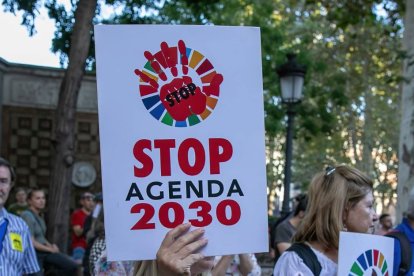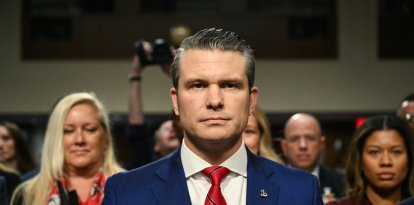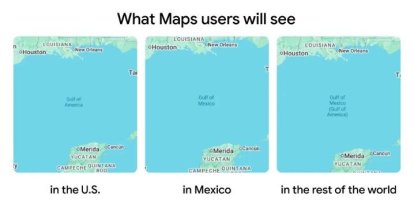Congress targets 'climate cartel' for violating antitrust laws by imposing ESG criteria
A report details that activists and institutions loyal to the 2030 Agenda force companies to publish data on emissions that violate competition rules.

(David Canales / SOPA Images/Sipa USA/Cordon Press)
The push to boost environmental, social and corporate governance factors - commonly known as ESG criteria - led Congress to examine whether supporters of the United Nations (UN) and its 2030 Agenda constitute a "climate cartel" and violate antitrust laws.
Through a provisional report called Climate Control: Exposing The Decarbonization Collusion in Environmental, Social, and Governance (ESG) Investing, the House Judiciary Committee detailed "new direct evidence of a 'climate cartel' consisting of left-wing activists and major financial institutions that collude to impose radical environmental, social, and governance (ESG) goals on American companies."
The committee noted that this alliance "disclose their carbon emissions, reduce their carbon emissions, and enforce their disclosure and reduction commitments by handcuffing and restricting company management, adding that it has succeeded in prompting several major asset managers to withdraw from Climate Action 100+."
On the sidelines, the committee chaired by Republican Representative Jim Jordan singled out the Biden Administration for "failing to investigate the climate cartel or enforce the antitrust laws against its members."
"The Committee remains steadfast in its commitment to preserving competition and protecting the welfare of American consumers. Its investigation underscores the importance of robustly enforcing longstanding antitrust law prohibiting anticompetitive collusion against the climate cartel," he concluded.
What is Climate Action 100+?
Climate Action 100+ is "an investor-led initiative to ensure the world’s largest corporate greenhouse gas emitters take necessary action on climate change in order to mitigate financial risk and to maximize the long-term value of assets."
Its three objectives are:
Companies from different sectors participate in this program, such as airlines (Boeing, United Airlines), pharmaceuticals (Bayer), automotive (Ford, Stellantis), consumer products (Carrefour, Danone) and conglomerates (Berkshire Hathaway) also.
RECOMMENDATION





















